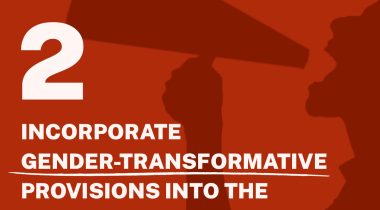
Nick Shaxson ■ Guest blog: should Argentina sign a tax treaty with Switzerland?

 Not long ago we published a Switzerland edition of our newsletter Tax Justice Focus, in which a contributor wrote:
Not long ago we published a Switzerland edition of our newsletter Tax Justice Focus, in which a contributor wrote:
“Developing countries wanting OECD-type tax agreements with Switzerland risk being forced into tax concessions on Swiss foreign investments, in exchange for information sharing on tax evaders.”
And the quality of the information they were likely to receive in exchange for those enormous concessions is likely to be exceedingly poor. Now we see a recent article in the Buenos Aires Herald, which looks at an imminent new Double Tax Agreement between Argentina and Switzerland, which we understand is due to be signed tomorrow in Berne:
“The agreement has the objective of eliminating double taxation on income and capital, especially on dividends, interests and royalties,” Switzerland Ambassador in Argentina Johannes Matyassy, told the Herald. “It restores the legal framework on double taxation after Argentina decided in 2012 to not continue applying the agreement.”
In light of what was said in Tax Justice Focus, this needs to be examined carefully. Now, a guest blog by Jorge Gaggero in Argentina, researcher at the CEFID-AR and member of the Red de Justicia Fiscal de America Latina y el Caribe:
Argentina, Switzerland, and tax treaties
In the past years the Argentine Tax Authority AFIP has been signing TIEAs with tax havens, along with making unclear reforms to the Income Tax Law Annex regarding these jurisdictions.
Argentina has been consistently condemning tax havens in international fora (mainly G20 and UNASUR), trying to limit their actions and means to foster capital flight. Yet AFIP’s actions stand in contrast to an acknowledgement by the G8, the G20 and the OECD about the grave limitations of TIEAs: they require specific requests to be made, on a case by case basis and frequently depend on a previous judicial process.
The G20 and the OECD have now decided to endorse a new, much stronger global standard of automatic information exchange, either bilateral or multilateral. Only this will actually be useful for Southern countries like Argentina.
Indeed, top U.S. tax expert Lee Sheppard recently recommended in a strongly worded speech in Norway:
“Do not sign DTAs with tax havens.”
The European Commission has recently recommended that EU members do not sign treaties with tax havens. Even TIEAs with tax havens are useless.
To understand how inconvenient DTAs with developed countries are for Argentina, Jorge suggests reading a paper by tax expert Antonio Hugo Figueroa entitled “Tax treaties to avoid international double taxation or to transfer resources from developing countries to developed ones?”. It is available (in Spanish) here: see page 128.
Related articles

The myth-buster’s guide to the “millionaire exodus” scare story

Money can’t buy health, but taxes can improve healthcare
The elephant in the room of business & human rights
UN submission: Tax justice and the financing of children’s right to education
14 July 2025
One-page policy briefs: ABC policy reforms and human rights in the UN tax convention
Tax justice pays dividends – fair corporate taxation grows jobs, shrinks inequality
UN Submission: A Roadmap for Eradicating Poverty Beyond Growth
A human rights economy: what it is and why we need it

Do it like a tax haven: deny 24,000 children an education to send 2 to school


